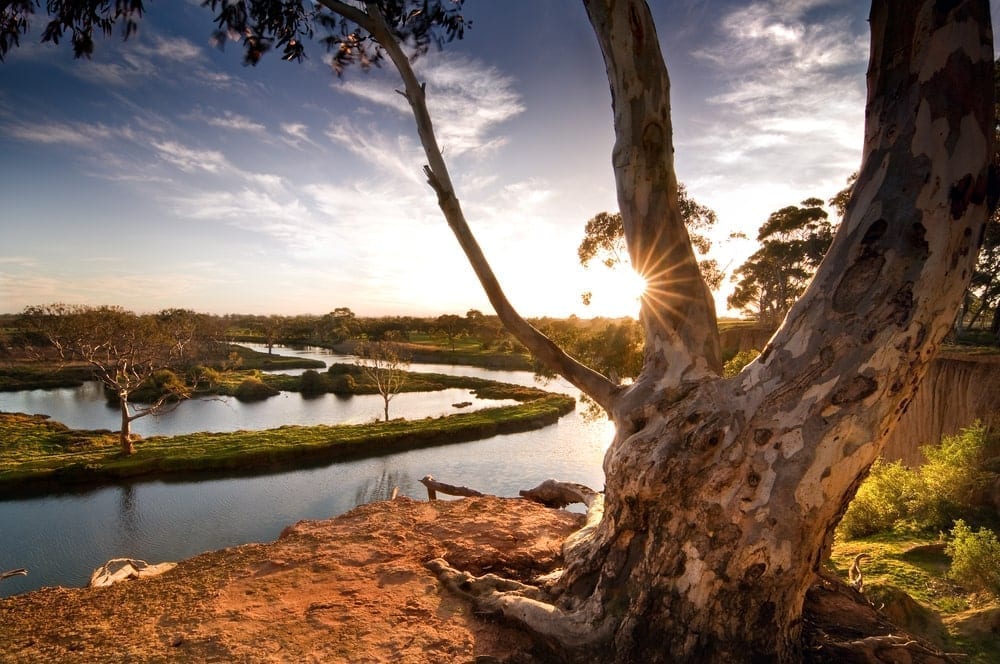How to Survive in The Bush With The Ultimate Camping Essentials & Survival Kit Checklist
The world is in a state of panic. Supermarket shelves are empty, cities have become ghost towns and people are getting charged with assault for fighting over rolls of toilet paper.
As you may have heard, coronavirus has brought the world to its knees. Self quarantine and isolation has become necessary to combat the virus from spreading.
In the midst of fear, this has prompted people to stockpile everything from potatoes, cake mix, flour and meats, to pasta and pasta sauce, tinned tuna, baked beans and every other household essential you can think of.
It has become so serious that supermarkets have now enforced an item limit per person on goods such as toothpaste, hand sanitizer, toilet paper, rice, milk and antibacterial wipes.
With hysteria spreading, it can be easy to fall victim to the panic buying. That’s why we’ve decided to write this article.
If you plan on going bush for a while, you’re going to need more than 48 rolls of toilet paper and 10 jars of pasta sauce to survive.
Here is the ultimate camping essentials, accessories & survival kit checklist of must-have items, and remember — before you go and buy 20x of each item in the list below, be sensible, think about others less fortunate than you and show some compassion.
Camping checklist
Shelter, bedding and furniture
- Tent, swags and awnings
- Bed, blankets, pillows, sheets and sleeping bags
- Air beds and pump
- Pegs, hammer, tarp, flooring or gazebo
- Foldable chairs, table and clothes line
Kitchen essentials
- Portable gas stove and spare gas canisters
- Cooking utensils, tableware and cutlery
- Pots & pans
- Fully stocked cooler/esky
- Paper towels, bin and bin bags
- Dishwashing detergent, bucket and sponge
- Lighters, fire starter and matches
- Water purification and rehydration tablets
- Can opener
Shower and toiletries
- Insect repellent and sunscreen
- Toothbrush and toothpaste
- Shampoo and body soap
- Shower mat, pole, tent and bucket/tub
- Solar shower/ hot water unit/ RV shower
Lighting and power
- Rechargeable or battery operated lanterns, torches, head strap lamp
- Solar panels
- Spare batteries
Safety kit
- Flares
- Fire extinguisher that is mounted in an easily accessible location of your vehicle.
- Tarp
- Flashlights and extra batteries
- Matches, fire starters, and a lighter
- Safety glasses
- Heavy duty gloves
- Hunting knife or an axe
Basic Survival Kit
Food and water
- Plenty of water. At least 2-6 litres of water per person, per day
- Twice the amount of food for the time you plan to spend away (not 20x)
- Non-perishable foods — canned tuna, soup, beans and meats
- Grain foods — cereal, long life bread (pita, tortillas, wraps), instant rice and noodles
- Fruit — canned fruits, dried fruits and fruit juice
- Vegetables — potatoes, canned veggies
- Nuts and seeds
- Long life milk
- Cooking oil and snacks
For a detailed shopping list including the amount and dietary requirements needed for 2 people to survive 7 days, click here.
First aid kit
- Antiseptic cream or ointment such as betadine
- Bandages and gauze dressings/ pads
- Bandaids
- Disposable gloves
- Antibacterial gel or wipes
- Scissors and tweezers
- Duct tape
- Burnaid cream
- Snake bite kit
- Blanket
- Hydration tablets
- Vitamins
- Prescriptions/ medications including paracetamol
- Instant cold and hot pack
Extra clothing
- Warm outer layers
- Waterproof jacket
- Beanie and hat
- Slippers or sandals
- Sunglasses
4WD and Off-road basics
The following list are the essentials that you should always carry in your 4×4 at all times when travelling off-road short and long distances.
- First Aid Kit
- Emergency communications such as a Satphone and UHF radio, or mobile phone boosters
- Camping essentials (mentioned above)
- Spare tyre and tyre changing toolkit
- Recovery equipment — at least a snatch strap or maxtrax, although a winch is recommended.
- Spare car key
- Safety Kit (mentioned above)
4WD Recovery gear
- At minimum, you should have exitrax and a snatchstrap
- Shovel
- Rated recovery points bolted to chassis or your bullbar
- Winch
- Rated D Shackles
- High lift jack or exhaust jack
- Tree protector and snatch pulley
Fishing gear
- Fishing rods and reels
- Tackle box, filleting knife
- Bait
- Bucket
- Rod holders
Total 4×4 is here to help
We understand it can be easy to get caught up in all the panic and fear, but the best thing we can all do is to remain calm. Together we can get through this madness if we all show some compassion, be sensible and support each other.
Practice good hygiene
- Cover coughs and sneezes with your elbow or a tissue
- Dispose of tissues properly
- Wash your hands as often as possible with soap and water, including before and after eating and after going to the toilet
- Use alcohol-based hand sanitisers and antibacterial wipes
- Clean and disinfect surfaces
- Clean and disinfect objects frequently such as mobiles, keys and wallets
If you do plan on ‘going bush’ you need to be prepared and equipped with the right camping and survival essentials. We also recommend inspecting your 4WD before embarking on your journey to ensure you and your passengers safety.
The last thing you’d want to happen is to be stranded in the middle of nowhere because you forgot to check basic elements on your forbie. If you’re in doubt, you can always contact the professionals at Total 4×4, who are happy to inspect your engine and vehicle to make sure you’re good to go.
